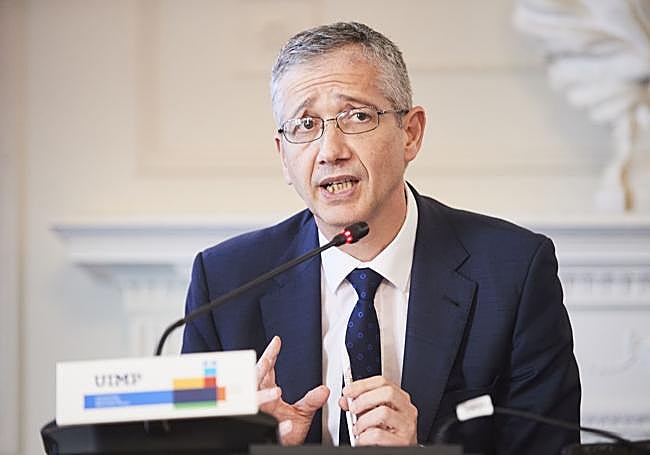Change at the top
De Cos, the governor of the Bank of Spain, has made his last tweak to the financial growth forecast because his non-renewable, six-year stint is up on 11 June
Pablo Hernández de Cos, the governor of the Bank of Spain, was in the news again for the usual reasons this week.
De Cos announced ... that his institution's 2024 growth forecast for the country will be hiked yet again in its next report, due in June, from the 1.9% projected in March (which was itself an upwards revision of the original prediction of 1.6%).
Driving these forecasts constantly up is Spain's better-than-expected GDP performance so far this year, which has been fuelled in large part by tourism and domestic consumption.
It'll be the last such tweak made by De Cos because his non-renewable, six-year stint is up on 11 June; and according to insiders, he might be replaced by the Bank's first female governor - 49 year-old Montserrat Martinez Parera, currently second-in-command at the National Securities Market Commission.
Although it may seem like De Cos's main job is to dispense malleable fiscal forecasts, he occupies a role that is central to Spain's economic policy and to the supervision of its banking sector.
Governor of the Bank of Spain - whose ornate headquarters is one of the most striking buildings in central Madrid - is the weightiest economic position in the country outside the cabinet - indeed its occupant has almost as much influence over fiscal matters as the economy minister. If Parera becomes the first woman to take on the role next month, she will have to be nominated by Pedro Sánchez and appointed by King Felipe VI.
This doesn't mean, however, that the Bank of Spain has to mindlessly endorse the executive's fiscal policies.
In his farewell speech to congress on Tuesday, De Cos reminded deputies that public levels of trust in Spanish politicians are at an all-time low, as well as arguing that political instability might prevent the structural reforms he believes are necessary over the next few years, two key areas being housing and unemployment.
De Cos also made a pointed reference to Sánchez's inability to pass this year's budget (a direct result of his rocky relationship with Catalan separatists), which he called a "document of great importance for the definition of economic policy".
The implication was clear: by simply rolling over 2023's spending plan instead of defining any new fiscal priorities for 2024, Sánchez's government is piling up problems for the future - especially as regards the effective disbursement of the EU's "Next Gen" funds.
If she becomes De Cos's successor next month, Parera - a Catalan who started her career at BBVA - would take the helm of Spain's national bank at a time when governmental spending needs monitoring more closely than ever.
¿Tienes una suscripción? Inicia sesión

